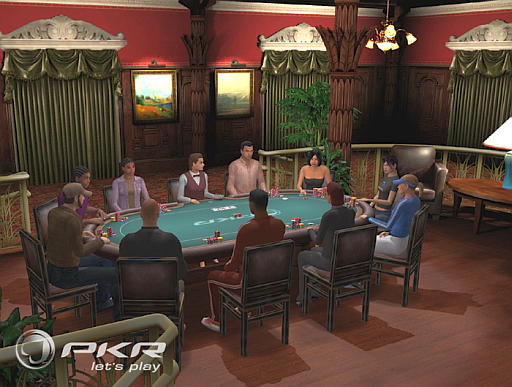 Over the past 25 years of carrying out research into gambling, I have also had a sideline career in video game research. One of the most notable trends that I have written about is the increasing convergence between the worlds of gambling and video gaming. On many levels – conceptually, behaviourally, and psychologically – the two activities are very similar. In fact, as long ago as 1991 I was considered strange for describing video games in one of my academic papers as a “non-financial form of gambling” where people played for points rather than prizes (which – of course – is paradoxical given that the dictionary definition of gambling typically includes the fact that people engage in the behaviour to win money or something of financial value). However, here I am over 20 years later and I still stand by what I wrote all those years ago.
Over the past 25 years of carrying out research into gambling, I have also had a sideline career in video game research. One of the most notable trends that I have written about is the increasing convergence between the worlds of gambling and video gaming. On many levels – conceptually, behaviourally, and psychologically – the two activities are very similar. In fact, as long ago as 1991 I was considered strange for describing video games in one of my academic papers as a “non-financial form of gambling” where people played for points rather than prizes (which – of course – is paradoxical given that the dictionary definition of gambling typically includes the fact that people engage in the behaviour to win money or something of financial value). However, here I am over 20 years later and I still stand by what I wrote all those years ago.
Arguably, video gaming is now the most popular leisure activity worldwide and a multi-billion dollar industry. More people buy and play games than other activities such as gambling and going to the cinema. The launch of video games like Call of Duty attract more publicity and hype than big Hollywood blockbusters. So what can the gaming industry – and perhaps more importantly, the online poker industry – learn from the video gaming world?
Many video games – especially online multiplayer games – involve the players having to play with what is put before them and attempt to get themselves into the optimal position based on whatever other circumstances other players in the game may do. (Some hardcore video gamers even use the cliché “I play with the cards I’m dealt with” to describe their gaming philosophy.) At this level of analysis it’s not hard to see there is a lot of similarity between the overall strategy of video game players and the overall strategy of online poker players.
Some video game insiders claim that real time strategy (RTS) games appear to be an ideal breeding ground for online poker players because RTS players (i) appear to have lots of disposable time (because the games require time and dedication to progress), (ii) share many of the same kind of personality traits including the intellectual curiosity to succeed, and (iii) are already heavily engaged in online leisure activity. Furthermore, they have to constantly learn new strategies in order to be successful in staying in the game and to get a small edge on those they are competing against. Players also need to have a competitive mindset and a total belief that their skill will win out. Again, there would seem to be recognizable similarities between hardcore online RTS players and hardcore online poker players. There may also be similarities in the demographics between these two types of players (i.e., young educated adult men).
Maybe one of the ways forward is for the online gambling industry to start advertising and/or sponsoring its game portfolio to online video game players, and letting them know that in addition to the fun and entertainment of playing the game itself, the most skilful players also win money for their efforts. Clearly, market research needs to be carried out on which type of online video gamer might be most likely to convert to playing games (like online poker) for money.
It’s very unlikely casual gamers (that often include a high proportion of women) would find the ‘winner take all’ approach of online poker psychologically appealing. Therefore, it’s really just a case of finding the common ground between the two types of player. However, an RTS player who spends many hours a day playing in a video game is highly unlikely to be able to additionally spend hours playing online poker. Therefore, it is likely to be a case of ‘all or nothing’. Therefore, the overall conversion rate may be small (but that doesn’t mean it won’t be profitable).

One thing that the online gambling industry can perhaps learn from the video game industry – at least on a peripheral level – is the power of good graphical interfaces. This is likely to contribute to the overall playing experience. My own research on the structural characteristics of video games has shown that realistic graphics to be an important motivating factor. Players like to be able to customize their avatars and play in an environment that they have helped co-create. More importantly, there are also other video gaming models that the online gambling industry could learn from that might bring in new types of players with a different demographic. The best example is arguably the casual social games that are played on social networking sites.
One of the things that games on social networking sites exploit is the intrinsic value of the game itself. Players will buy virtual goods for their characters or the gaming environment simply because they love the game. They are buying entertainment. Online poker playing outside of social networking sites typically plays upon the extrinsic motivation of winning money. The fact that there are so few winners compared to losers in online poker means that it will only ever attract a small sub-section of the total adult population.
In online social networking sites, casual players will pay to buy virtual chips to play poker for points rather than money. There are typically no financial rewards and yet people play these games in their millions. Like the archetypal arcade video game player, they are playing with money rather than for it. The creators of these games have done their market research and they know exactly what their players want. They have monetized entertainment rather than relying on the chance of winning big. It’s not about the money. It’s about intrinsic reward and the reward of playing the game itself. It’s about the achievements, the reinforcing pop-ups, and the customization opportunities. The message is simple. By going back to basics, new revenue can be built on the intrinsic gameplay itself rather the extrinsic reward of winning money.
About The Author
Dr. Mark Griffiths is a Chartered Psychologist and Professor of Gambling Studies at the Nottingham Trent University, and Director of the International Gaming Research Unit. He is internationally known for his work into gambling and gaming addictions and has won many awards including the 2009 Research Award from the US National Council on Problem Gambling.